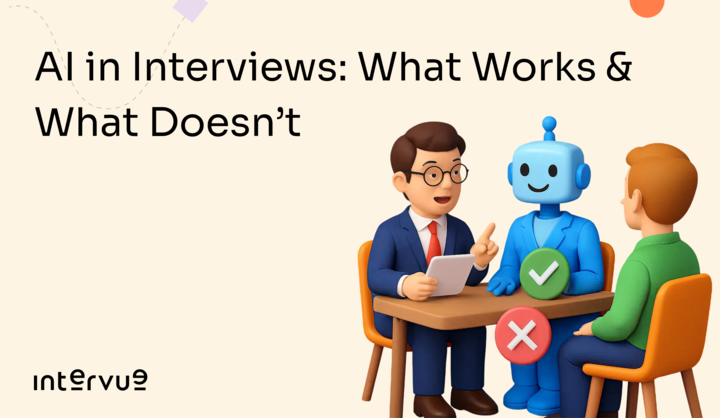The Art of Hiring: Balancing Tech Savvy with Human Connection
Recruiters require a combination of hard skills and soft skills to excel in their roles. Hard skills are specific, teachable abilities that are typically quantifiable and technical in nature, while soft skills are interpersonal attr

In the world of recruitment, being a standout HR professional means having a mix of tech savvy and people skills. Imagine this: you're juggling sourcing techniques, scanning through resumes, all while keeping up with ever-changing laws. But hey, you're also building genuine connections, chatting with potential hires, and making sure everyone feels heard and valued.
So, there you have it – the secret sauce of being an awesome HR professional. It's all about balancing the tech stuff with the human touch, using every tool at your disposal to find the perfect match for both the candidate and the company.
Hard Skills vs Soft Skills of Recruiters
Here's a breakdown of the hard skills and soft skills that recruiters need:
Hard Skills:
- Sourcing Techniques: Recruiters need to be proficient in using various sourcing methods, including online job boards, social media platforms, Boolean searches, and applicant tracking systems (ATS), to identify and attract qualified candidates.
- Candidate Assessment: This involves evaluating candidates' qualifications, skills, and experiences to determine their suitability for specific roles. Recruiters may use techniques such as resume screening, skills assessments, and competency-based interviews to assess candidates effectively.
- Employment Law and Compliance: Recruiters must have a solid understanding of employment laws and regulations to ensure compliance with legal requirements throughout the recruitment process, including equal employment opportunity (EEO) laws, anti-discrimination laws, and data privacy regulations.
- Technology Proficiency: Recruiters should be proficient in using various recruitment technologies and tools, such as applicant tracking systems (ATS), customer relationship management (CRM) software, video interviewing platforms, and job board aggregators, to streamline the recruitment process and manage candidate pipelines efficiently.
- Data Analysis and Reporting: Recruiters need to analyze recruitment data and metrics to measure the effectiveness of their strategies, identify areas for improvement, and make data-driven decisions. Proficiency in data analysis tools and reporting software is essential for generating insights and optimizing recruitment perfor
Soft Skills:
- Communication: Effective communication skills are essential for recruiters to convey information clearly, build rapport with candidates and stakeholders, and facilitate productive interactions throughout the recruitment process.
- Active Listening: Recruiters must be skilled listeners to understand candidates' needs, motivations, and concerns accurately. Active listening enables recruiters to gather valuable insights and engage candidates effectively.
- Empathy: Empathy allows recruiters to understand and empathize with candidates' experiences, perspectives, and emotions, fostering trust and rapport and enhancing the overall candidate experience.
- Relationship Building: Strong relationship-building skills enable recruiters to establish and maintain connections with candidates, hiring managers, and industry contacts, facilitating collaboration and networking opportunities.
- Problem-Solving: Recruiters need strong problem-solving skills to identify challenges, develop creative solutions, and overcome obstacles that may arise during the recruitment process.
Technology Skills in Recruitment
- Connection with Top Talent:
Technology enables recruiters to connect with top talent that may have been challenging to reach without specific tech tools. Platforms like social media, LinkedIn, and Facebook groups facilitate easier connections with potential candidates, expanding the reach of job postings.
- Efficiency and Organization:
Technology makes the recruiter's job more enjoyable and organized when used correctly, streamlining tasks and improving efficiency. Tools like Applicant Tracking Systems and AI recruitment tools help in intelligent candidate screening, saving time and effort for recruiters.
- Global Reach:
Advancements in technology have enabled recruiters to receive applications from various locations, broadening the talent pool and offering opportunities for remote interviews via tools like Skype.
- Enhanced Candidate Assessment:
Video interviewing has become a valuable tool for recruiters to conduct face-to-face interviews remotely, allowing them to assess candidates' behavior and presentation skills effectively. Technology aids in accurate candidate assessment, leading to better hiring decisions and improved employee retention rates.
- Balancing Technology with Human Touch:
While technology enhances recruitment processes, maintaining a balance with traditional, human-led strategies is crucial for successful recruitment outcomes. Personal interactions, intuitive judgment, and relationship-building remain essential in recruitment alongside technological advancements
Benefits of Content Writing Skills
Improved Communication and Negotiation Outcomes: HR professionals often need to communicate with candidates, employees, managers, and other stakeholders. Strong content writing skills enable HR professionals to craft clear, persuasive, and compelling messages, whether they're negotiating job offers, communicating company policies, or resolving conflicts. Well-written communication can help convey complex information effectively, leading to smoother negotiations and better outcomes for all parties involved.
Enhanced Credibility and Professionalism: Content writing skills contribute to the professionalism and credibility of HR professionals. Clear and concise writing reflects positively on the organization and builds trust with employees and candidates. When HR professionals can articulate policies, procedures, and company values in a coherent and engaging manner, they establish themselves as knowledgeable and trustworthy representatives of the organization.
Time Savings and Increased Productivity: Effective content writing can save HR professionals time by streamlining communication processes and reducing the need for clarification or follow-up. By crafting well-structured documents, such as job descriptions, employee handbooks, or training materials, HR professionals can convey information efficiently and accurately. Additionally, having strong writing skills allows HR professionals to draft emails, reports, and memos more quickly, freeing up time to focus on other essential tasks.
Better Candidate Attraction and Engagement: In today's competitive job market, attracting top talent requires compelling and engaging content. HR professionals with content writing skills can create captivating job postings, company profiles, and employer branding materials that resonate with candidates.
Effective Training and Development Initiatives: Content writing skills are essential for developing training materials and resources for employees. Whether it's creating e-learning modules, instructional guides, or training manuals, HR professionals need to communicate complex information in a way that is easy to understand and retain.
Bottom Line
In summary, being an effective recruiter involves a mix of technical abilities and interpersonal skills. From sourcing candidates to building relationships and managing expectations, recruiters need to balance technology with a personal touch.
Content writing skills play a crucial role in clear communication and engagement throughout the recruitment journey. By honing these skills and striving for improvement, HR professionals can achieve successful outcomes and forge meaningful connections with candidates and stakeholders.



